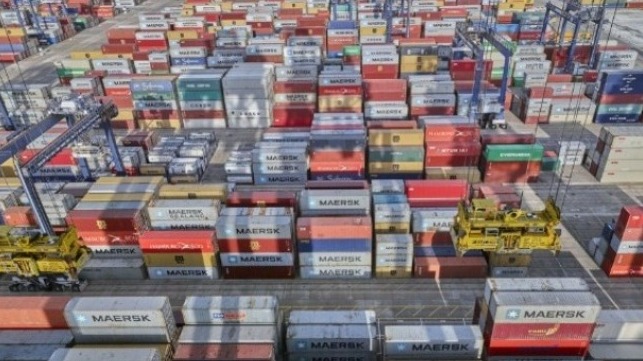Report: Brexit Increased Congestion at UK Ports

While all of the world’s ports were impacted by COVID-19, new data from the container trading platform Container xChange says that post-Brexit trade disruption and ongoing congestion are now causing critical build-ups of containers at UK ports beyond the container availability issues experienced at Europe’s other large container ports.
An analysis of data on the platform for buying, selling, and leasing shipping containers, indicates that the situation has worsened since the beginning of 2021. The UK’s leading container terminals, Container xChange reports struggled to cope with the pandemic driven surge of imports last year which like most ports around the world resulted in lengthy delays for haulers and vessels and an excess of containers building up in ports. However, their analysis shows that since the UK departed the European Union on January 1 and started trading under a post-Brexit customs and regulatory regime, the container logjams at major ports have increased.
“The UK’s leading gateway terminals for container traffic suffered congestion for much of 2020 prompting carriers to cut some calls and ship cargo in from European hubs via the Channel Tunnel, ferry services, and feeder services instead,” said Dr. Johannes Schlingmeier, CEO of Container xChange. “Based on the build-up of containers at ports in 2021, it seems the situation has further deteriorated. We are now seeing critical levels of boxes building up at Southampton and Felixstowe. Post-Brexit cross-Channel shipments are more complicated under dual-Customs regimes and this could be a factor in logistics bottlenecks.”
Container xChange maintains the Container Availability Index (CAx), where a reading of 0.5 describes a balanced market with the same amount of containers enter and leave a specific port. Below 0.5 means more containers leave the port compared to how many enter, index values above 0.5 show a buildup of containers at the port.
The index shows that the port of Felixstowe is averaging 0.95 so far in 2021 for a 40-foot container up from 0.79 in 2020. There has been a similar increase for 20-foot containers at Felixstowe. Also, at Southampton, the index for 40-foot boxes is at 0.86 in 2021, up from an average of 0.71 last year.
Seeking to avoid the bottlenecks and delays at Britain’s two southern ports, the container lines diverting service into Liverpool. The result has also seen increases in Container xChange’s index as Liverpool struggled to handle increased volumes. They report that the index for 40-foot boxes rose from an average of 0.59 in 2021 to a current 0.75 in Liverpool with similar rises for 20-foot containers.
By comparison to the major British ports, the other European gateway ports while also suffering disruptions and delays due to the impact of the pandemic, have been able to maintain a better balance and container availability.

that matters most
Get the latest maritime news delivered to your inbox daily.
Container xChange reports that Rotterdam’s average reading for a 40-foot container rose from .40 in 2020 to a current 0.51. At Antwerp, shortages have been a problem, with an average reading for a 40-foot container of 0.21 in 2020 improving to a more balanced 0.41 this year. Similarly, in Hamburg, the index average for a 40-foot container in 2020 was 0.27 suggesting critical shortages. This year the average reading has improved to 0.49.
Container xChange concludes that the major British ports are struggling to clear an excess of containers. The already challenging situation experienced in 2020 was made worse in 2021 by the new Brexit processes.
